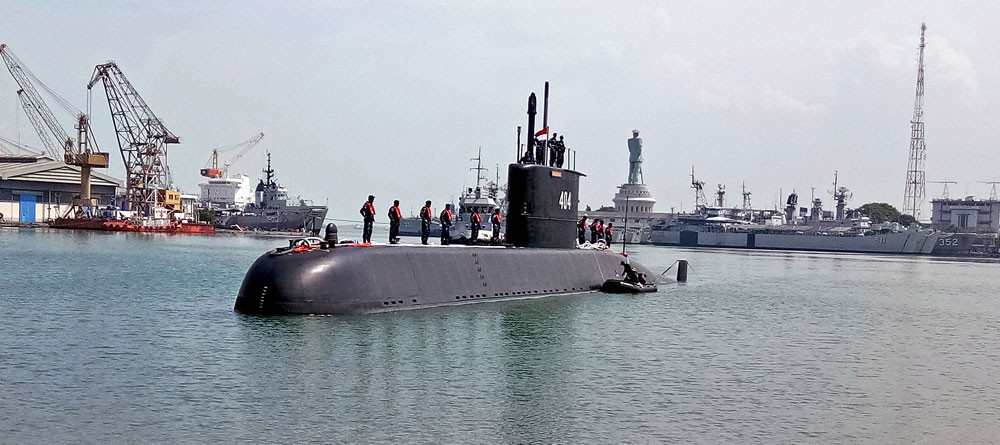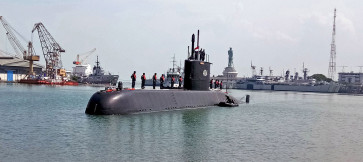Popular Reads
Top Results
Can't find what you're looking for?
View all search resultsPopular Reads
Top Results
Can't find what you're looking for?
View all search resultsTNI modernization should encompass an effective offset policy
As offset and transfer of technology programs will play an important role in the TNI’s long-term modernization plan, they should also support Indonesia’s DTIB to improve its capacities and capabilities.
Change text size
Gift Premium Articles
to Anyone
 Line of defense: The KRI Ardadedali-404 arrives at the Indonesian Navy base in Surabaya, East Java, from South Korea in May 2018. The KRI Ardadedali-404 is the second submarine jointly produced by South Korea’s Daewoo Shipbuilding and Marine Engineering (DSME) and Indonesia’s Penataran Angkatan Laut (PAL) Indonesia.
(The Jakarta Post/Wahyoe Boediwardhana)
Line of defense: The KRI Ardadedali-404 arrives at the Indonesian Navy base in Surabaya, East Java, from South Korea in May 2018. The KRI Ardadedali-404 is the second submarine jointly produced by South Korea’s Daewoo Shipbuilding and Marine Engineering (DSME) and Indonesia’s Penataran Angkatan Laut (PAL) Indonesia.
(The Jakarta Post/Wahyoe Boediwardhana)
U
pon his appointment as defense minister, Prabowo Subianto claimed that one of his most crucial priorities was to continue the modernization of the Indonesian Military (TNI) based on careful and efficient assessment, as procurement processes are considered complicated and time-consuming.
The TNI modernization plan, also known as the Minimum Essential Force (MEF), set in 2010, is aimed to be achieved by 2024 and implemented through three strategic plans (Renstra).
While the government has less than four years to achieve its target, several concerns have hampered the modernization program. First, realization of Renstra I and Renstra II as of December 2020 had only reached 62.31 percent. Even if the budget is enough to meet the MEF target, negotiations and manufacturing processes will take years before the equipment can be delivered to the TNI.
Another challenge is related to financial constraint. Budget refocusing because of the COVID-19 pandemic further cut the defense budget. In the draft budget for 2022, the government allocated the highest portion for the Defense Ministry, amounting to Rp133.92 trillion (US$9.3 billion). It should be kept in mind that not all of the budget will be earmarked for defense equipment. Meanwhile, funding for major equipment acquisition relies heavily on foreign loans mechanisms, which should be validated and realized with the consent of the Finance Ministry.
An extremely important aspect in procurement is to make sure that the modernization program will not only benefit the TNI, but also the Indonesian Defense Technological and Industrial Base (DTIB).
Indonesia has already implemented several regulations to ensure that defense equipment procurement will also support the development of the DTIB, namely Law No.16/2012 on Defense Industry (UU Inhan), Government Regulation No.76/2014 and Defense Minister Regulation (Permenhan) No.30/2015.
Put simply, these regulations create mandatory obligations for foreign suppliers, such as Counter Trade, Offset and Transfer of Technology (CTLCO), so Indonesia could, in the future, fulfil domestic demands and decrease dependency on foreign Original Equipment Manufacturers (OEMs).














